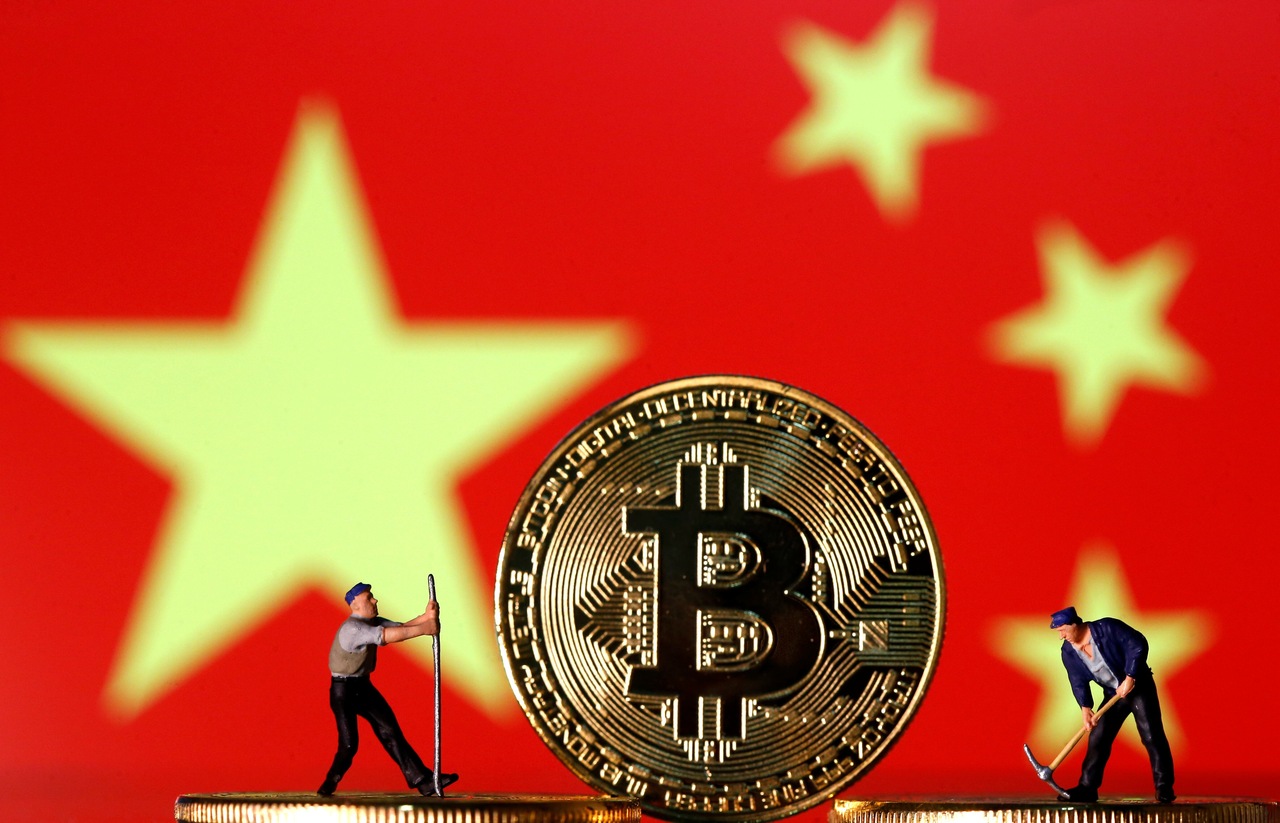

Changpeng Zhao: China’s Inevitable Bitcoin Reserve Explained
In a groundbreaking statement at the Bitcoin MENA conference, Changpeng Zhao, the former CEO of Binance, shared a bold prediction that has caught the attention of the cryptocurrency world. He believes that it is “inevitable” for China to establish a strategic Bitcoin reserve. With cryptocurrencies becoming an increasingly important topic in global finance, Zhao’s statement carries significant weight. His insights suggest that China might soon shift its approach to Bitcoin, a move that could reshape both the cryptocurrency market and international economic policies.
The Context of Zhao’s Prediction
Zhao’s assertion about China and Bitcoin comes at a time when national governments are starting to view Bitcoin as a legitimate asset for reserve purposes. His prediction is particularly timely, considering the current political and economic landscape. In the United States, President-elect Donald Trump has recently proposed creating a national Bitcoin reserve. This proposal has sparked debates on the potential impact on Bitcoin holders and the broader cryptocurrency ecosystem.
For Zhao, the Chinese government’s historically cautious stance on cryptocurrencies doesn’t preclude the possibility of a significant shift. He noted that China’s ability to enact policies quickly could lead to a rapid change in its approach to Bitcoin. While smaller nations may take the first steps, larger countries like China are likely to follow suit once they recognize Bitcoin’s value as a store of wealth.
Bitcoin’s Role in National Reserves
Bitcoin’s appeal as a reserve asset lies in its unique characteristics. Unlike traditional assets such as gold or foreign currencies, Bitcoin is decentralized, limited in supply, and operates outside the control of any government. These features make it particularly attractive to countries looking to diversify their reserves and reduce dependence on more volatile or controlled assets. Zhao’s prediction is grounded in these factors, as they reflect a growing trend among nations to explore Bitcoin as a viable alternative for bolstering their financial stability.
Why China Might Embrace Bitcoin
China’s potential interest in accumulating Bitcoin may stem from several key considerations.
Diversification of Reserves
In a world of increasing economic uncertainty, countries are looking for ways to safeguard their wealth by diversifying their reserves. Bitcoin, with its fixed supply of 21 million coins, offers a store of value that is not subject to inflationary pressures or central bank manipulation. As global financial systems face turmoil, Bitcoin could serve as a hedge against traditional fiat currencies and offer a more stable alternative for national reserves.
Economic Sovereignty
China has long sought to reduce its reliance on the U.S. dollar, a goal that aligns with its broader strategy to assert itself as a global economic leader. By accumulating Bitcoin, China could decrease its dependency on the dollar and bolster its economic independence. This move would give China greater control over its own financial system, reducing vulnerability to the influence of foreign governments.
Technological Leadership
As the world moves toward digital currencies, China’s proactive stance on Bitcoin could enhance its influence in the rapidly changing digital finance landscape. China’s ambitions to lead in technology and innovation are well known, and integrating Bitcoin into its financial system would signal to the world that China is not just a follower but a leader in the digital currency revolution.
The Implications of a Chinese Bitcoin Reserve
Should China proceed with creating a Bitcoin reserve, the consequences could be far-reaching.
Market Dynamics
China’s accumulation of Bitcoin would significantly impact the cryptocurrency market. The demand for Bitcoin would likely rise, which could lead to an increase in price. With a fixed supply of Bitcoin, this added demand could create significant volatility in the market. At the same time, it would lend legitimacy to Bitcoin as a store of value, encouraging more institutional investors to consider the asset for their portfolios.
Geopolitical Tensions
China’s adoption of Bitcoin could escalate existing geopolitical tensions, especially with the United States. As both nations jockey for economic dominance, their approaches to Bitcoin could become a point of competition. The idea of countries racing to accumulate Bitcoin might emerge, with the U.S. and China each trying to secure a strategic advantage in the global financial system.
Influence on Smaller Nations
China’s decision to adopt Bitcoin as a reserve asset could set a powerful example for smaller nations. Countries facing economic instability or currency devaluation may see Bitcoin as a way to stabilize their economies. Additionally, adopting Bitcoin could attract foreign investment and improve their global standing. Other nations, especially those in emerging markets, may follow China’s lead, creating a ripple effect throughout the global financial system.
Challenges Ahead
While Zhao’s prediction about China embracing Bitcoin is compelling, several obstacles stand in the way of such a move. These challenges include regulatory concerns, price volatility, and the technological infrastructure needed to support a national Bitcoin reserve.
Regulatory Uncertainty
The global regulatory environment for cryptocurrencies is still evolving. Different countries have taken various approaches, ranging from complete bans to full legalization. China, in particular, has been cautious about regulating Bitcoin, with the government imposing restrictions on cryptocurrency exchanges in the past. If China were to pursue a Bitcoin reserve, it would need to navigate these regulatory challenges carefully, both domestically and internationally.
Price Volatility
Bitcoin’s price volatility is one of its most well-known characteristics. While the asset has experienced significant price increases in recent years, it has also seen dramatic declines. For a country looking to stabilize its reserves, Bitcoin’s volatility could pose a major risk. Governments would need to develop strategies to manage the potential fluctuations in Bitcoin’s value while still reaping the benefits of its long-term growth.
Infrastructure Requirements
Building a national Bitcoin reserve would require significant technological infrastructure. Countries would need to invest in secure systems for storing and transacting digital assets. This would involve not only the creation of secure wallets but also the development of blockchain infrastructure to ensure safe, transparent transactions. Cybersecurity would be a critical concern, as the risks associated with hacking and theft could undermine the stability of a Bitcoin reserve.
The Road Ahead
Changpeng Zhao’s prediction that China will inevitably create a Bitcoin reserve points to a broader shift in the global financial landscape. As more nations begin to recognize the potential of Bitcoin and other cryptocurrencies, the way that countries manage their reserves could change dramatically. Zhao’s insights suggest that Bitcoin’s role in the future of global finance is only beginning to take shape, and we may soon see a transformation in how governments approach digital assets.
For policymakers, Zhao’s statement underscores the need to think critically about the future of money. While challenges such as volatility and regulatory uncertainty remain, the potential benefits of incorporating Bitcoin into national financial strategies are too significant to ignore. Governments may soon find themselves at a crossroads, where embracing digital currencies could offer a new path to economic stability and resilience.
Conclusion
Changpeng Zhao’s prediction about China’s inevitable Bitcoin reserve is a powerful statement about the future of global finance. It reflects the growing acceptance of digital assets and the role they may play in reshaping national reserves. If China moves forward with such a plan, it could signal the beginning of a new era in global economics, where Bitcoin and other cryptocurrencies are seen not just as speculative assets but as integral components of financial systems worldwide.
As this trend unfolds, it will be important for all stakeholders—governments, businesses, and investors—to stay informed about these developments and adjust their strategies accordingly. The future of money is changing, and nations that successfully navigate this shift could find themselves leading the charge into a new, more decentralized global economy.
Source:
- China to adopt strategic Bitcoin Reserve: Changpeng Zhao
- China to build Bitcoin reserve following U.S. lead, Binance CZ says
- China and Bitcoin: CZ Unveils an Inevitable Scenario






